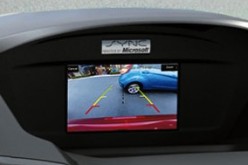Each option comes with a unique set of advantages and challenges, from financing rates to long-term operating costs. This guide breaks down the most important factors to consider, giving first-time car buyers the confidence to make an informed choice.
Whether you’re considering used car financing or exploring the perks of new car affordability, this article will walk you through every aspect of the decision-making process—from insurance and maintenance costs to depreciation and resale value.
Affordability and Financing Rates
For most first-time buyers, affordability is the starting point. Cars, whether new or used, represent a significant financial commitment, and it’s essential to establish a realistic budget before making a purchase.
New cars often come with lower financing rates because lenders see them as lower risk compared to older vehicles. Manufacturers and dealerships frequently offer promotional financing deals with competitive rates for new cars. These options can make a new car’s monthly payments more manageable, even if the sticker price is higher upfront.
On the flip side, used cars are generally more affordable overall, but they might come with higher interest rates. Lenders tend to offset the risks associated with used vehicles by charging more in interest. Additionally, shorter loan terms are often recommended when financing a used car, potentially leading to higher monthly payments.
Understanding how financing impacts your budget is crucial. Calculate your monthly payment, factor in interest rates, and consider how the total cost compares between new and used options. If you’re leaning toward used car financing, shop around to find lenders who specialize in competitive rates for pre-owned vehicles.
Avoiding High Maintenance Costs
Another major factor to weigh is the cost of maintenance. Used cars are more likely to come with hidden issues or require repairs sooner than a new car would—but that doesn’t mean they aren’t worth considering.
Before purchasing a used vehicle, carefully check its history report. Look for details on prior accidents, mileage, and routine maintenance records. Certified pre-owned (CPO) vehicles are worth exploring since they often come with warranties and a thorough inspection from the manufacturer. These inspections help mitigate some of the risks and offer peace of mind for first-time buyers.
New cars, on the other hand, come with the obvious advantage of requiring little to no initial maintenance. Most new vehicles are under warranty for at least the first three years, providing financial relief if unexpected problems arise. The additional cost savings in the short term might make new cars a worthwhile option for buyers worried about repair bills.
Insurance Considerations
The type of car you buy has a notable impact on your insurance premiums. First-time buyers should be mindful of how insurance companies calculate rates for both new and used cars.
New vehicles tend to be more expensive to insure because of their higher market value and advanced features. If your new car sustains damage, insurance payouts are likely to be higher, which increases premiums. However, newer safety features like collision sensors and lane-keeping assist can sometimes reduce rates in certain scenarios.
Insurance for used cars is generally cheaper, as the car’s lower market value means reduced repair and replacement costs. However, drivers of older vehicles may opt for less comprehensive coverage to cut insurance costs even further, which could leave them less protected.
Compare insurance quotes for specific models you’re considering, and think about factors like your driving history, location, and coverage needs before making a final decision.
Depreciation and Resale Value
Depreciation is one of the biggest drawbacks of buying a new car. On average, a new car loses about 20% of its value in the first year and continues to depreciate in the following years. This means that if you plan to sell or trade your vehicle in a few years, you may not recoup a significant portion of what you paid.
Used cars, however, have already bypassed the steepest depreciation curve. When you buy a pre-owned vehicle, the value you lose over time is generally much smaller, making it a smarter financial choice for buyers concerned about resale value.
If you’re considering a used car to maximize resale potential, make sure to research models that retain their value well. Reliability and longevity are key factors that affect how much you can eventually sell your vehicle for.
Operating Costs
Long-term operating costs are another critical consideration, especially for first-time buyers. These expenses include fuel efficiency, routine maintenance, and insurance.
Newer cars often come equipped with the latest fuel-efficient technologies, potentially saving you money at the gas pump over time. Hybrid and electric models, for instance, offer even greater savings for environmentally conscious buyers.
Additionally, a new vehicle’s components are usually more efficient, which can result in reduced wear and tear and improved overall performance.
Used cars can be slightly less fuel-efficient, depending on their age and mileage. However, many used vehicles still offer decent efficiency, particularly models that were specifically designed with fuel savings in mind. When evaluating a used car, make sure to take its fuel economy and maintenance history into account to avoid unexpected costs.
Both new and used cars come with their own unique operating cost benefits. Consider your daily commuting needs and driving habits to determine which option aligns best with your budget and priorities.
other related articles of interest:
How Interest Rates Affect Your Auto Loan and What You Can Do About It
Think You Can’t Afford to Own a Car? 5 Ways You Can Save on Regular Auto Costs
Find the Right Fit for Your Needs
Deciding between a new or used car comes down to your individual financial situation, driving needs, and long-term goals. New cars offer appealing benefits like lower maintenance costs and advanced features, but they also come with higher upfront and insurance costs.
Used cars, on the other hand, provide significant savings on depreciation and insurance premiums, while requiring careful attention to maintenance history and potential repairs.
First-time buyers should carefully weigh these trade-offs when making their decision. Take your time, research thoroughly, and don’t be afraid to test drive multiple options. Ultimately, whether you’re drawn to the reliability of a new car or the value of a used car, the right choice is the one that fits your lifestyle and budget.
And remember, your car-buying experience doesn’t have to be a solo mission. Speak with financial advisors, insurance professionals, or trusted friends and family for advice. Armed with the right information, you can drive away in a car that’s perfect for you.
Image Credit: should you buy a used or new car by envato.com
end of post … please share it!
end of post idea for home improvement
view and analyze home improvement ideas at our LetsRenovate center
Helpful article? Leave us a quick comment below.
And please give this article a rating and/or share it within your social networks.













